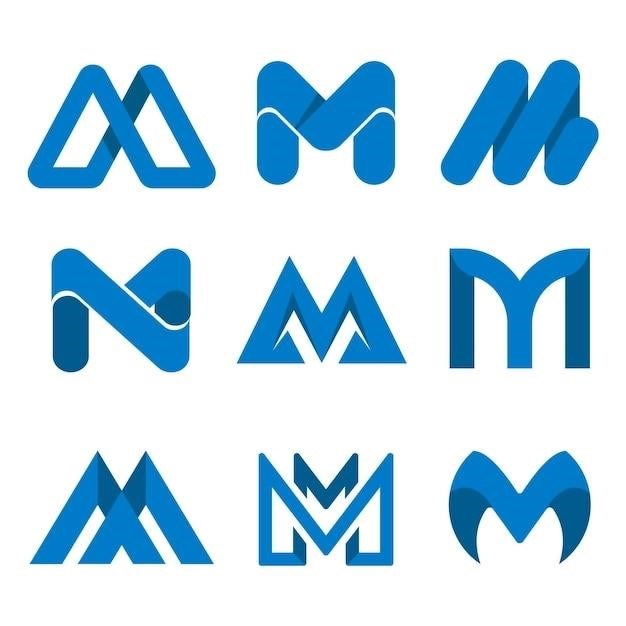What is a Georgia Rental Agreement PDF?
A Georgia rental agreement PDF is a digital document that outlines the terms and conditions of a lease between a landlord and tenant in Georgia․ It serves as a legally binding contract that defines the responsibilities and rights of both parties during the rental period․
Understanding the Purpose
The primary purpose of a Georgia Rental Agreement PDF is to establish a clear and legally binding agreement between a landlord and tenant․ It outlines the terms of the lease‚ including rent payments‚ property maintenance responsibilities‚ lease duration‚ and other crucial aspects of the rental relationship․ This ensures both parties understand their obligations and protects them from potential disputes․
Key Elements of a Georgia Lease Agreement
A Georgia Lease Agreement typically includes essential elements such as the names and contact information of both landlord and tenant‚ a detailed property description‚ the rental period and payment schedule‚ security deposit details‚ utility responsibilities‚ pet policies‚ and procedures for lease termination and renewal․ These elements ensure a comprehensive and legally sound agreement․

Types of Georgia Lease Agreements
Georgia lease agreements come in various forms‚ tailored to different rental situations‚ including standard (1-year)‚ month-to-month‚ commercial‚ and lease-to-own arrangements․
Standard (1-Year) Lease Agreement
The Georgia standard residential lease agreement is a common document used to establish a fixed-term tenancy arrangement․ It outlines the tenant’s obligation to pay rent monthly and adhere to lease rules for a one-year period․ The agreement details rent amount‚ payment terms‚ and other stipulations relevant to the tenancy․ This type of lease provides stability and clarity for both the landlord and tenant․
Month-to-Month Lease Agreement
A Georgia month-to-month lease agreement offers a more flexible rental arrangement compared to a standard one-year lease․ This type of agreement allows the tenant to occupy the property for a single month‚ with the option to renew the lease on a month-to-month basis․ It provides greater flexibility for tenants who might have shorter-term housing needs or prefer not to commit to a longer lease period․
Commercial Lease Agreement
A Georgia commercial lease agreement is specifically designed for the rental of business-related spaces‚ such as retail stores‚ offices‚ or industrial properties․ These agreements often include unique clauses related to business operations‚ such as signage rights‚ permitted uses‚ and potential restrictions on tenant modifications to the property․ They also address the responsibilities of both parties regarding utilities‚ maintenance‚ and insurance for the commercial property․
Lease to Own Agreement
A Georgia lease-to-own agreement‚ also known as a rent-to-own agreement‚ combines elements of a traditional lease with an option to purchase the property at the end of the lease term․ This agreement allows the tenant to gradually build equity in the property while they are renting it․ The terms of the purchase option‚ including the purchase price and any applicable down payment‚ are typically specified in the agreement․
Essential Components of a Georgia Rental Agreement
A Georgia rental agreement should include details about the parties involved‚ the property being rented‚ the rental period‚ and the payment terms․
Parties Involved
The Georgia rental agreement should clearly identify the parties involved in the lease․ This includes the landlord’s full name or the property management company’s legal business name and the full name of the tenant(s)․ The agreement should also specify the contact information for each party‚ such as their address‚ phone number‚ and email address․
Property Description
The Georgia rental agreement must provide a detailed description of the rental property․ This includes the full address‚ including the city‚ zip code‚ and any unit or lot number․ It should also specify the type of property‚ such as a single-family home‚ apartment‚ or commercial space․ The agreement may also include a description of the property’s features‚ such as the number of bedrooms and bathrooms‚ square footage‚ and any included appliances․
Rental Period and Payment
The Georgia rental agreement must clearly state the length of the rental period․ This could be a fixed term‚ such as a one-year lease‚ or a month-to-month arrangement․ The agreement should also specify the amount of rent due each month‚ the due date‚ and the acceptable payment methods․ It may also include details about late fees‚ grace periods‚ and rent increases․
Security Deposit
The Georgia rental agreement should specify the amount of the security deposit‚ which is typically a sum of money held by the landlord to cover potential damages to the property․ The agreement should also outline the conditions under which the security deposit can be used‚ such as unpaid rent or repairs‚ and how it will be returned to the tenant upon the end of the lease․
Utilities and Responsibilities
The Georgia rental agreement should clearly define which utilities are the responsibility of the landlord and which are the responsibility of the tenant․ This might include water‚ electricity‚ gas‚ garbage collection‚ internet‚ and others․ The agreement should also specify who is responsible for routine maintenance and repairs within the property․
Pet Policy
The Georgia rental agreement should outline the landlord’s pet policy‚ including whether pets are allowed‚ the types of pets permitted‚ any restrictions on breed or size‚ and any fees or deposits associated with pet ownership․ The agreement should also specify the tenant’s responsibilities regarding pet care and behavior within the rental property․
Termination and Renewal
The Georgia rental agreement should clearly outline the process for terminating the lease‚ including the required notice period and grounds for termination․ It should also specify the conditions for lease renewal‚ such as whether the lease automatically renews‚ the process for renewing the lease‚ and any potential rent increases․
Legal Requirements and Disclosures
Georgia law mandates specific disclosures within rental agreements‚ ensuring tenants are informed of crucial details about the property and their rights․
Lead-Based Paint Disclosure
For properties built before 1978‚ federal law mandates a lead-based paint disclosure within Georgia rental agreements․ Landlords must provide a specific form‚ detailing any known lead-based paint hazards․ This ensures tenants are aware of potential risks and allows them to take necessary precautions․
Flood Disclosure
Georgia law requires landlords to inform tenants if the rental property has a history of flooding․ This disclosure‚ often included as a separate form‚ helps tenants understand potential risks and make informed decisions about renting the property․ The disclosure should include details about past flood events and any available flood insurance information․
Other Required Disclosures
Besides lead-based paint and flood disclosures‚ Georgia landlords may need to provide additional information depending on the property and local regulations․ These could include disclosures about⁚
- Radon gas
- Mold
- Property liens
- Homeowners association rules
It’s crucial for tenants to thoroughly review all disclosures to understand potential issues and responsibilities․
Finding and Using Georgia Rental Agreement PDFs
Finding and using Georgia rental agreement PDFs is crucial for both landlords and tenants to ensure a legally sound and clear rental arrangement․
Online Resources
Numerous online resources offer Georgia rental agreement PDFs‚ both free and paid․ Websites like Rocket Lawyer‚ LegalZoom‚ and PDFSimpli provide customizable templates that can be tailored to specific needs․ These platforms often offer additional services like legal advice and document storage․
Legal Professionals
Seeking legal advice from a qualified attorney is highly recommended when creating or reviewing a Georgia rental agreement PDF․ An attorney can ensure the agreement complies with Georgia laws‚ protect both parties’ interests‚ and address any unique circumstances or potential legal issues․
Software and Templates
Numerous online platforms and software applications offer Georgia rental agreement PDF templates that can be customized to fit specific needs․ These resources provide pre-written clauses and sections that meet legal requirements and simplify the process of creating a legally sound agreement․
Tips for Creating and Using a Georgia Rental Agreement
Creating and using a Georgia rental agreement effectively requires careful consideration and attention to detail to ensure a smooth and legally sound rental experience for both landlord and tenant․
Review and Understand the Agreement
Before signing any Georgia rental agreement‚ thoroughly review and understand all the terms and conditions․ Pay close attention to the rental period‚ rent amount‚ payment due date‚ security deposit requirements‚ pet policies‚ utilities responsibilities‚ and any other specific clauses․ If unsure about any provision‚ don’t hesitate to seek clarification from the landlord or a legal professional․
Ensure Legal Compliance
It’s crucial to ensure that your Georgia rental agreement complies with all applicable state and federal laws․ This includes verifying the landlord’s adherence to fair housing laws‚ tenant rights‚ and any specific regulations regarding security deposits‚ rent increases‚ and eviction procedures․ If you have any doubts about legal compliance‚ consult with a qualified attorney specializing in landlord-tenant law․
Maintain Clear Communication
Open and transparent communication is essential for a successful landlord-tenant relationship․ Both parties should make it a priority to discuss any concerns‚ requests‚ or changes promptly․ Regular communication can help prevent misunderstandings and resolve issues before they escalate․ It’s also crucial to document all conversations and agreements in writing‚ ensuring a clear record of the terms of the lease․
Document Everything
Keeping detailed records of all interactions‚ payments‚ and repairs is vital․ This includes saving copies of all communication‚ receipts for rent payments‚ and documentation of any maintenance requests or repairs․ This documentation can be invaluable in resolving disputes or proving compliance with lease terms‚ offering a valuable safeguard for both the landlord and the tenant․
Seek Professional Advice When Necessary
While many resources are available online‚ it’s essential to seek legal advice from a qualified attorney when dealing with complex lease issues or facing disagreements with the other party․ An attorney can ensure the agreement complies with Georgia law and guide you through any legal matters‚ providing crucial expertise and protection for your rights․






